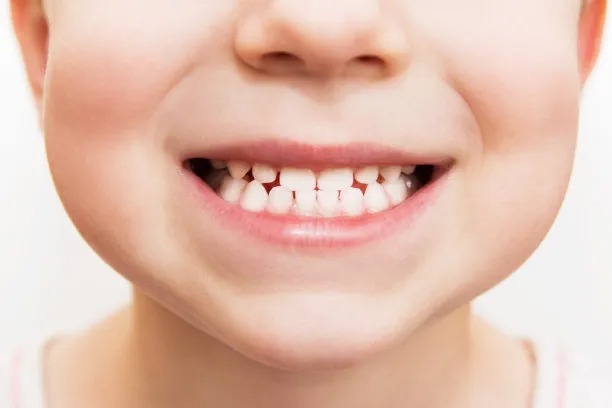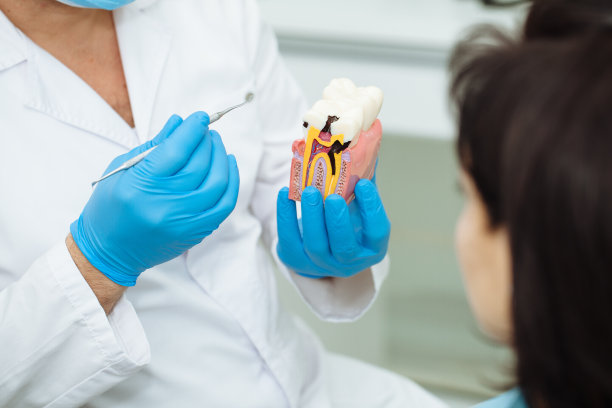Summary: The practice of tooth extraction plays a critical role in maintaining overall dental health. While many individuals may fear the prospect of losing a tooth, there are essential circumstances where extraction becomes not only necessary but also beneficial. This article will explore various scenarios where tooth extraction is warranted, including severe decay, crowding, and periodontal disease. It will also highlight the importance of consulting dental professionals to evaluate the situation thoroughly and to provide appropriate treatment options for optimal oral health. Understanding when and why tooth extraction is necessary can alleviate fears and pave the way for a better dental future.
1. Severe Decay and Infection

Severe tooth decay is one of the most common reasons for extraction. When a tooth has been compromised by extensive decay, it often cannot be saved through fillings or crowns. In such cases, leaving the decayed tooth in place can lead to further health complications. The bacteria that cause decay can spread to the surrounding tissues, leading to infections.
Infections can manifest in various ways, serving as a source of chronic pain and swelling. In more severe situations, the bacteria can enter the bloodstream, creating risks for systemic health issues. Thus, extracting a severely decayed tooth not only alleviates the immediate pain but also helps prevent further health risks.
Regular dental check-ups are crucial for identifying severe decay before it escalates. Dentists can provide timely interventions, which can sometimes restore a tooth, but when the damage is extensive, extraction becomes the best option for maintaining dental health.
2. Orthodontic Treatment and Crowding
Crowding of teeth is another situation where extraction may become necessary. In many cases, dental arches may lack sufficient space for all the teeth to fit properly, leading to misalignment. This can make it difficult to maintain proper dental hygiene, creating a higher risk for cavities and gum disease.
As part of orthodontic treatment, dentists or orthodontists often recommend extracting certain teeth to help create the needed space for alignment. By removing one or more teeth, the remaining teeth can shift into a more favorable position, resulting in a healthier bite.
The decision to extract teeth for orthodontic reasons typically involves careful planning and monitoring by dental professionals. Their expertise ensures that the extraction process supports both aesthetic and functional outcomes, ultimately contributing to long-term dental health.
3. Periodontal Disease Management
Periodontal disease, or gum disease, is a serious condition that can lead to tooth loss if left untreated. This disease involves the infection and inflammation of the gums and supporting structures of the teeth. In advanced stages, the associated bone loss can make it difficult to maintain the integrity of the affected teeth.
In this context, tooth extraction may be necessary to prevent the spread of infection and preserve the overall health of the jawbone and remaining teeth. Removing a tooth that is severely affected by periodontal disease allows dentists to create a healthier environment for the remaining teeth.
Moreover, dental professionals can leverage the opportunity to address the underlying issues related to gum disease, such as deep cleaning and periodontal therapy. This comprehensive approach helps patients regain control over their oral health and can prevent further realignment issues or additional extractions down the line.
4. Wisdom Teeth Removal and Preventive Care
Wisdom teeth, the last set of molars that typically emerge in late adolescence or early adulthood, often require extraction due to various reasons. These teeth may become impacted, meaning they do not fully emerge in the correct position, leading to pain and potential crowding of other teeth.
In many cases, dentists advocate for the preemptive removal of wisdom teeth to avoid complications such as infections or cysts. Extracting wisdom teeth as a preventive measure helps keep the mouth healthier in the long run, reducing the likelihood of needing more involved dental work in the future.
This proactive approach emphasizes the importance of regular dental visits, especially for younger patients. Dentists can monitor the development of wisdom teeth and make informed recommendations about extraction as necessary, ensuring optimal dental health throughout ones life.
Summary:
Tooth extraction is a critical aspect of oral health management that addresses various dental challenges, such as severe decay, crowding, periodontal disease, and wisdom teeth complications. Understanding these scenarios supports informed decision-making regarding dental care and emphasizes the importance of professional consultations.
Addressing dental issues proactively can prevent further complications and maintain a healthy, functional smile. The importance of professional guidance cannot be overstated.
This article is compiled by Vickong Dental and the content is for reference only.
Vickong Dental
Vickong Dental is a large medical group established in Hong Kong in 2008 by professors from well-known medical universities in Guangdong and Hong Kong, as well as medical doctors from key national '985' universities (including Master's supervisors and senior professors). The chain of branches brings together expert dentists with PhDs and Master's degrees from Hong Kong and Mainland China, committed to providing high-quality dental treatment.
"Vickong Dental Practices the University Motto of 'Healing and Serving Society,' with a Stable Operation for Sixteen Years. It Has Been honored with Hong Kong Enterprise Leaders's Choice,' and is a Global Trusted Implant Center for the Nobel Implant System. Recommended by Hong Kong Metro Broadcast and Guangdong Television, it Serves Customers from Over Thirty Countries and Regions, Gaining the Trust and Favor of Citizens from the Guangdong-Hong Kong-Macau Greater Bay Area and Surrounding Cities.

Thousands of customers' unanimous praise
The most recognized and highly recommended dental service by customers in the Guangdong-Hong Kong-Macau Greater Bay Area
We Ensure You Receive Detailed Care and Attention Here
Hong Kong standards, Shenzhen prices, Your Trusted English-speaking dentists

Vickong Dental Medical-Grade Instrument Disinfection Process
Vickong Dental Medical-Grade Instrument Disinfection Process

Vickong Dental Chain: A Warm and Comfortable Environment for Treatment






Appointment Hours

Q&A
Why choose Vickong Dental?
Vickong Dental practices the university motto 「Medicine to Benefit Society」, with each branch bringing together highly qualified dentists with doctoral and master’s degrees from Hong Kong and the Mainland, and has maintained seventeen years of steady operation。Recipient of 「2024 Hong Kong Enterprise Leaders Brand」, 「2025 Hong Kong Enterprise Leaders Brand」, a Nobel Biocare Global Trusted Implant Center, and a brand recommended by Metro Radio Hong Kong and Guangdong TV。
To date, we have served customers from more than thirty countries and regions,earning exceptionally high word-of-mouth recognition and trusted recommendations from residents across the Guangdong-Hong Kong-Macao Greater Bay Area and surrounding cities
We have eight major branches in Zhuhai、Shenzhen,and a consultation and service assurance center in Hong Kong,so you can book a free consultation at any time for any questions,which is very reassuring.
If I do not accept the quotation after the CT scan, will I be charged??
No! As long as the actual treatment has not started, you will not be charged any fees.
Will there be any additional charges during the treatment process?
No, there won’t be any additional charges. Before treatment begins, we will clearly explain the treatment plan and its corresponding fees. Only after the patient agrees and signs the consent form will we proceed with the dental service.
Can I pay in Hong Kong dollars?
Yes. Vickong Dental accepts payment in Hong Kong dollars. The amount will be converted based on the exchange rate of the day, and the applicable rate will be clearly communicated to you in advance.
Can I reschedule my appointment at any time?
Yes. Please contact us via **WeChat** or **WhatsApp** as early as possible, providing your original appointment time and details, along with your preferred new date and time slot for rescheduling.













